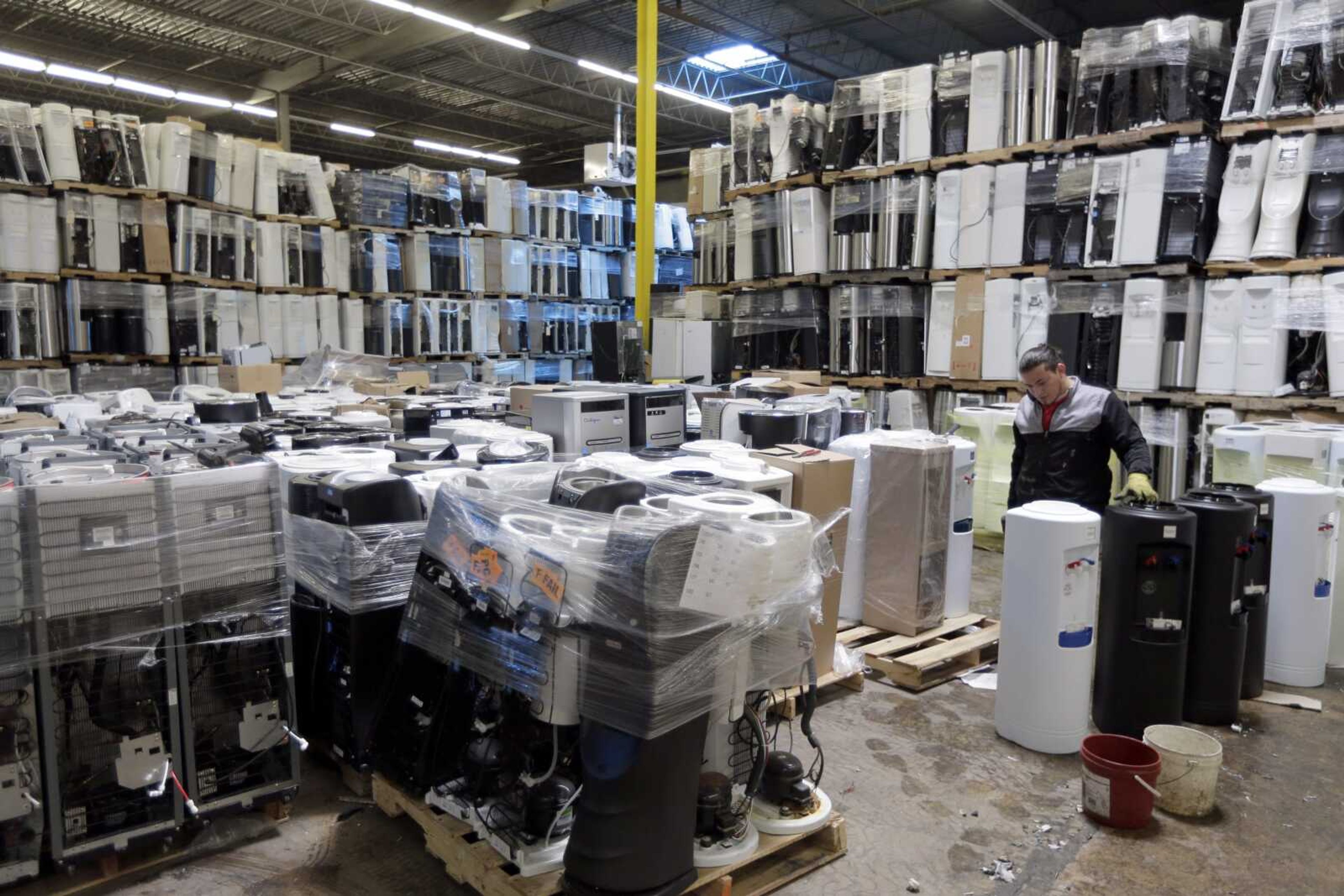July jobs report shows solid gains amid trade frictions
WASHINGTON -- U.S. employers slowed their hiring in July but still added a solid 164,000 jobs to an economy appearing poised to extend its decade-long expansion. The unemployment rate remained at 3.7% for a second straight month, the government said Friday. Average hourly earnings rose 3.2% from a year ago, up from a 3% year-over-year gain in June...
WASHINGTON -- U.S. employers slowed their hiring in July but still added a solid 164,000 jobs to an economy appearing poised to extend its decade-long expansion.
The unemployment rate remained at 3.7% for a second straight month, the government said Friday. Average hourly earnings rose 3.2% from a year ago, up from a 3% year-over-year gain in June.
Though the pace of hiring has slowed this year, one reason is a growing share of Americans already have jobs. Unemployment is near a half-century low. The overall U.S. economy remains on firm footing, and last month the expansion became the longest on record.
"This report is a sigh of relief," said Daniel Zhao, a senior economist for the jobs site Glassdoor. "It had good solid numbers and was largely in line with expectations."
Still, the economy has faced some tumult as President Donald Trump has escalated his trade conflict with China. On Thursday, Trump announced plans to impose tariffs on an additional $300 billion of Chinese imports beginning in September. That move could slow U.S. economic growth if the tariffs remain in effect indefinitely, especially if Beijing retaliates as expected.
U.S. consumers will likely feel the pain. Trump's earlier tariffs had been designed to minimize the impact on ordinary Americans by focusing on industrial goods. But the new tariffs will hit a vast range of consumer products.
The Federal Reserve has acted to try to sustain the expansion in part because some of the benefits are only now reaching America's lower-income communities. The Fed on Wednesday cut its benchmark interest rate for the first time in a decade to try to counter the impact of Trump's trade wars, stubbornly low inflation and global weakness.
As Trump's trade conflicts escalate, the economy and the job market could weaken. Recession fears could increase. But for now, hiring appears solid.
"We're really at a sweet spot despite all the negatives swirling around us," said Robert Frick, corporate economist at Navy Federal Credit Union. Frick said the slowdown in monthly job gains was organic given the size of past gains and the length of expansion.
Nevertheless, the trade frictions have been weighing on global financial markets.
"The sometimes backward-looking nature" of the jobs data make it less relevant for the financial markets given the possibility of additional tariffs against China could raise prices for U.S. consumers, Rick Rieder, BlackRock's chief investment officer of global fixed income, said.
In Friday's employment report for July, the government revised down its estimate of job growth for May and June by a combined 41,000.
Over the past six months, the economy has added jobs at a monthly average of roughly 141,000. That is down from a monthly average of 236,000 during the same period last year.
One clear positive is wage gains have been strongest for poorer workers.
Fed Chairman Jerome Powell told reporters Wednesday one reason to cut rates was to sustain the longest expansion in U.S. history because people living in distressed communities finally "are now getting opportunities to add new and better chapters to their lives."
Lower-wage industries reported average hourly earnings in those sectors jumped 4.6% from a year ago, considerably above the 2.5% pay gain for higher-wage industries, according to an analysis of the jobs report by Martha Gimbel, research director at the jobs site Indeed.
Connect with the Southeast Missourian Newsroom:
For corrections to this story or other insights for the editor, click here. To submit a letter to the editor, click here. To learn about the Southeast Missourian’s AI Policy, click here.









